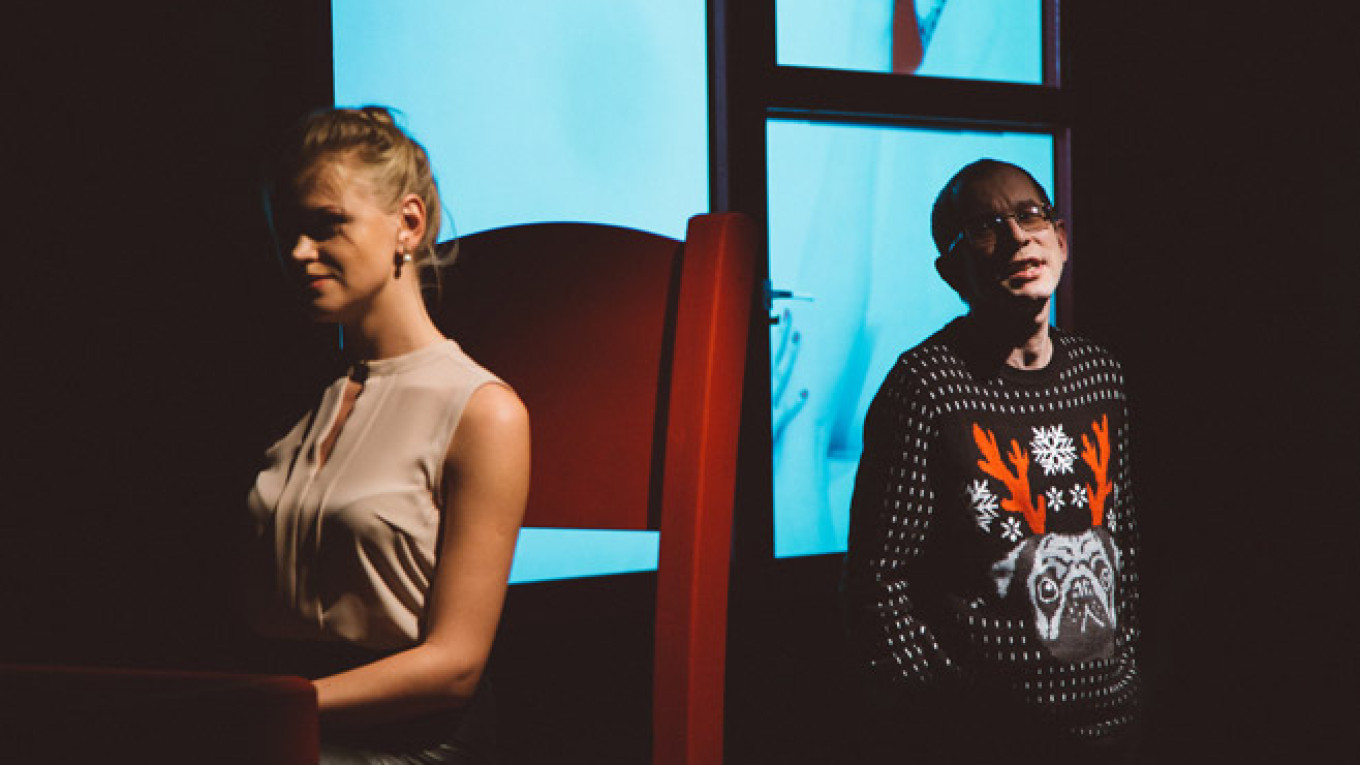Who are we? And why are we what we are? These are questions people ask not only after Russia's marathon New Year and Christmas holidays, a time when any unsuspecting individual might believe that he or she has stepped into the Twilight Zone and will never, ever get out again.
For those who lost track, let me set you straight: On Wednesday, Old Russian New Year's Day, we begin crawling out from under a bewildering thrill of interminable year-end celebrations. The Old Near Year followed Old New Year's Eve, Russian Christmas and the so-called "Catholic Christmas," as well as the New Year that many around the world celebrate as the calendar turns from December to January.
Fortunately — although Russians do love to gear up again for the Chinese New Year in February — nobody yet has suggested tying all of these holidays up in a single bundle.
But I digress.
Maxim Chernysh's play "Emptiness," at the Meyerhold Center, has nothing whatsoever to do with New Year or any other holiday. It is concerned with the issues of identity and self-definition that Muscovites confront every day of the year.
In this drama that emerged from the Lyubimovka new play festival in 2013, Chernysh brought together people of varied social status. There's a head of a company (Sergei Shevchenko) and his executive secretary (Anna Kotova-Deryabina). There's a lesser-ranking businessman (Mikhail Rudenko) and a lesser secretary (Vitalia Yenshina). There is a drunk (Alexei Maslodudov), a writer (Dmitry Urosov) and a man who, shall we say, fulfills the "husband function" (Valentin Samokhin).
All are in transition, looking for that proverbial "something better." Some of the men are looking for new women to spice up their lives. The women are looking to attach themselves to men who might take them farther than where they are now.
Director Lera Surkova split the tiny stage in the Black Hall at the Meyerhold Center into three, even four, discrete spaces. At far stage left, actors who are not performing in a given scene sit quietly on a bench waiting their turn. The writer, whom one assumes is not exactly a big success, hangs out in a dark corner at far stage right. He cracks jokes from there, smiles at pretty much everything that happens and, on occasion, tosses off pearls of wisdom, just as you might expect a writer to do.
But the real business of the show takes place in one of two central locations — a table center-right and an open space before a microphone that is backed by a screen almost constantly showing videos. Designer Yekaterina Dzhagarova made the chairs at the table significantly bigger than usual, presumably to make anyone who sits in them look like a child.
These are not, we guess quickly, the most mature of adults, even though the predicaments they get themselves into are what we might expect from grown-ups.
One woman, in an effort to escape a near-abusive relationship with her drunken boyfriend, falls hard when a smooth operator sets out to seduce her by making himself irresistible through low-key moves. Don't get me wrong: She doesn't fall hard in love, she just falls hard. What happens when you exchange one empty relationship for another?
A husband and wife each look for ways to quietly and comfortably disengage in order to make more time to spend with their lovers, but crises have a way of unexpectedly bringing people together again too. There are shards of chivalry left in some.
The microphone is present on stage for two reasons: songs and confessions. The former are a test for anyone with musical tastes, the latter give us some insight into what makes each of these individuals tick. At least, that is the intent.
One particularly amusing, if not earth-shattering, thought shared in an unguarded moment: "How do you earn money if not by criminal activity?"
But I never got particularly close to any of these characters. They all seemed generic, even when they were attractive in some basic way.
Maria Yastrebova's video installation, which runs throughout the performance as if it were a window into other worlds, can be ironic, provocative, functional, educational or atmospheric. It lends a weight and variety to the performance that I didn't always see in the characters or their situations.
Emptiness ("Pustota") plays Jan. 31 at 7:30 p.m. in the Black Hall at the Meyerhold Center, located at 23 Novoslobodskaya Ulitsa. Metro Mendeleyevskaya. Tel. 495-363-1048. Running time: 1 hour, 40 minutes.
Contact the author at artsreporter@imedia.ru


